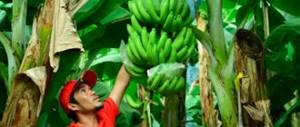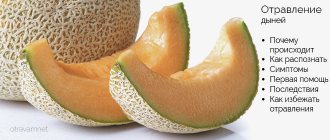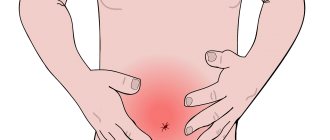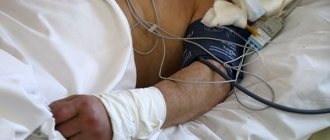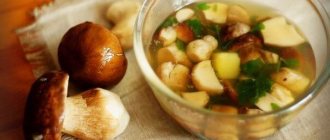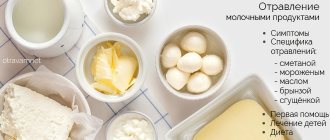Apples are juicy, sweet and sour, red-sided, yellow and green, a universal fruit, full of vitamins, macro- and microelements, a source of iron necessary for the heart, tissues and circulatory system.
loading…
This is a favorite delicacy of most people. There is no private house in which an apple tree does not grow. Compotes and juices are prepared from the fruits, baked, and pies with delicious fillings are obtained. It would seem that there can be only one benefit from an apple. But they can also cause severe food poisoning and significantly damage a person’s health. Why does apple intoxication happen?
How does apple poisoning occur?
If the apple crop is harvested from trees growing along major highways or in the protected zone of industrial enterprises, the content of heavy metal salts in them exceeds the permissible levels several times. The entry of such compounds into the body leads to toxic damage to internal organs (liver, kidneys, lungs) and the central nervous system.
To increase the yield of apple trees, some unscrupulous gardeners add excessive amounts of mineral fertilizers to the soil. As a result, nitrates and nitrites accumulate in the fruits, which can also cause serious intoxication.
Another common cause of apple poisoning is a banal violation of hygiene rules. During growth, harvesting, transportation and storage, the surface of apples becomes contaminated with pathogenic microorganisms. If the apple is not thoroughly washed before eating, microbes enter the digestive tract, causing the development of foodborne illnesses.
Preventive measures
To protect yourself from poisoning with healthy and tasty apples, you need to follow simple preventive measures. If there are apple trees in the garden, you should not treat them with large amounts of chemicals.
Any fruit - picked from personal fruit trees or purchased at the market, in a store - must be thoroughly washed under running water before consumption.
When preparing juice from a juicy fruit, the peel must be removed; most nitrates and pesticides are collected on it. No need to pick up apples from the ground. When buying products in a store, it is recommended to pay attention to their appearance - apples that are too large with a perfect glossy surface indicate that the product was grown using harmful substances, in particular growth hormone, which accelerates the ripening process.
Too smooth skin of the fruit indicates the fact that it was treated with a special preparation that is toxic to humans, so that the apples could withstand long transportation without losing their attractive commercial appearance. You should not buy fruits out of season; they are brought from afar, not always adhering to the necessary transportation rules, which is why the product begins to deteriorate from the inside.
Excessive eating of delicious ripe apples is a cause of poisoning, which is very easy to avoid. You don't need to eat tons of fruit. The body does not have the ability to accumulate vitamins, so it will not be possible to stock up on nutrients for your immune system in the fall. You can only get seriously poisoned.
Symptoms of poisoning
Symptoms of apple poisoning depend on the cause of the poisoning.
If poisoning is associated with the presence of heavy metal salts, the following symptoms are present:
- abdominal pain, often spastic in nature;
- nausea and vomiting;
- diarrhea;
- irritation of mucous membranes;
- jaundice;
- decreased diuresis;
- the appearance of protein and casts in the urine (determined in the laboratory).
Slightly different symptoms are observed in case of poisoning by apples with an excessive content of nitrates. Characteristic:
- cramping pain in the abdomen;
- cyanosis of the nail bed;
- nausea and vomiting;
- diarrhea with traces of blood in the stool.
Foodborne illness associated with apple poisoning occurs with fever, abdominal pain, diarrhea, nausea and vomiting.
Source: depositphotos.com
Expert opinion
Andrea Galli, chef of the Cherry Mio restaurant and teacher of the Rozhnikovsky Gastronomic Academy culinary school:
– Fresh apples can be added to any salad with herbs and vegetables – they will give a very pleasant sourness. To prevent the pulp from darkening, sprinkle it with lemon juice. Apples go especially well with tender white meat of chicken, duck and pork. They can be stewed, used for stuffing, as a side dish or sauce. And, of course, apples are the main characters of dessert dishes. Bake them with honey and nuts, make strudels, bake cakes and make jam.
First aid for apple poisoning
If symptoms of intoxication occur after eating low-quality apples, first aid is provided in the following sequence:
- Gastric lavage. The victim is given several glasses of a pale pink solution of potassium permanganate or salted water to drink, after which they induce vomiting by pressing on the root of the tongue. The procedure is repeated several times until clean wash water appears. Gastric lavage should not be performed at home on unconscious people or children in the first five years of life.
- Use of intestinal sorbents. To inactivate toxic substances that have managed to penetrate the small intestine, the victim should take Activated Carbon, Filtrum STI, Smecta or any other enterosorbent. These drugs bind toxins and remove them, thereby preventing their further absorption from the intestines into the bloodstream.
- Carrying out oral rehydration. When poisoned by apples, patients develop dehydration, electrolyte balance is disturbed, and signs of general intoxication appear. To eliminate them, drink plenty of fluids. You can give weak unsweetened tea, still mineral water, a solution of Regidron or Peditral. You should not drink a large volume of liquid at once, as this will cause increased nausea and may cause vomiting; it is better to take 1-2 sips every few minutes.
You can get meningitis by eating an unwashed apple or swimming in a river.
On June 6, an outbreak of purulent meningitis was recorded in Rostov-on-Don. Among the victims were more than 70 kindergarteners, two children died. Everyone who has children is seriously scared: how to protect their children from a terrible scourge? How dangerous is this disease for adults? The situation is explained by infectious disease doctor Nina PROKOFIEVA.
– The term “meningitis” means inflammation of the lining of the brain and spinal cord.
It can be caused by different pathogens - depending on this, doctors distinguish between bacterial, viral, tick-borne, typhoid, herpetic, fungal, meningococcal, pneumococcal and tuberculous meningitis.
Both bacteria and viruses are transmitted through water, vegetables, fruits and other foods, dirty hands, toys, and also “fly” from a sick person to a healthy person through airborne droplets. Infection can occur when swimming in natural bodies of water and swimming pools.
All types of meningitis are deadly and have terrible complications. The most vulnerable are children under seven years of age. The younger the child, the faster and more severe the infection. People over 55 years of age who have problems with the central nervous system, head or back injuries are also at risk.
Photo by Alexander LAGUTEEV/Komsomolskaya Pravda
An outbreak of infection in Rostov-on-Don was caused by enteroviruses. They can affect the central and peripheral nervous systems, the mucous membrane of the oropharynx, the mucous membrane of the eyes, skin, muscles, heart, intestinal mucosa, liver, and in boys, testicular damage is possible.
Acute liver failure or myocarditis can lead to death, as happened to a boy from the Teremok kindergarten. Kindergarten children could have become infected anywhere. It is possible that one of them caught the virus over the weekend: he touched something dirty and put his hands in his mouth, inhaled something bad and brought it into the garden.
Or one of the staff or parents came to the kindergarten with an infection - adults may not get sick themselves, but be its carrier. The infection spread rapidly in a damp, not very well ventilated room, crowded with children.
The children from the Teremok kindergarten could have contracted the infection at the market located very nearby. Photo by Alexander LAGUTEEV/Komsomolskaya Pravda
Rapid meningococcus
The second child who died in Rostov had no contact with the children from this kindergarten - he died from meningococcal infection. Meningococci are also transmitted by airborne droplets from a sick person or a bacteria carrier. Meningococcal infection can begin with a common runny nose and end there.
But bacteria are able to penetrate the blood, and then meningococcal sepsis cannot be ruled out. And this is scary: a blood clotting disorder leads to hemorrhages in internal organs and often ends in death. Everything happens very quickly - minutes count. About ten percent of those sick die, 20 percent become disabled.
The main thing is to recognize the infection as early as possible and begin treatment.
A year and a half ago, the nine-month-old daughter of actress Elena ZAKHAROVA died from an acute viral infection
What should you be wary of?
How do you understand that you need to urgently call an ambulance and agree to hospitalization without hesitation?
* Loose stools, vomiting.
* Expanding headache in the frontal and occipital regions. The pain intensifies with changes in head position, coughing, bright light and loud sounds. In young children, a large fontanelle bulges.
* Increased sensitivity of the skin, rashes in the form of small hemorrhages throughout the body.
* Convulsions, psychomotor agitation, delirium, hallucinations, confusion.
* Characteristic position - the patient lies on his side, head thrown back, arms pressed to the chest, legs drawn to the stomach.
* The appearance of red papules on the palatine arches, uvula, tonsils, which quickly turn into blisters.
Vaccination and disinfection
Vaccination against meningococcal infection in Russia is done only in special cases - when there is a threat of epidemics or before traveling to a region where there is a risk of disease, although many epidemiologists advocate the inclusion of the vaccine against meningococcus in the National Vaccination Calendar. You can vaccinate your child voluntarily at regional immunization centers.
If we talk about enterovirus infection, then, unfortunately, there are so many varieties that there is no universal vaccine yet. In Europe, vaccines containing the most common enterovirus infections (Coxsackie A-9, B-1, ECHO-6) are used, which at least partially reduces the risk of morbidity.
As a result of an emergency, the head of a kindergarten in Rostov-on-Don was fired. But if only this could solve the problem! Even with absolute sterility in the institution and the highest professionalism of the employees, no one is immune from illness.
Still, as a preventive measure, I would advise strictly following the rules of personal hygiene. When you come home from the street, be sure to wash your hands and teach your children to do the same.
Keep your house clean - enteroviruses are afraid of disinfectants; ventilate the room more often. Wash vegetables and fruits with soap, do not “share” a towel or toothbrush with anyone, do not drink from the same mug, and do not let children do this.
And stay away from sneezing and coughing citizens - the infection is highly contagious.
When is medical help needed?
Apple poisoning in most cases proceeds relatively benignly; after first aid is provided, acute symptoms disappear within the first day, therefore, as a rule, victims do not seek medical help. But there are situations when medical help is necessary:
- apple poisoning occurred in a pregnant woman, a child in the first years of life or an elderly person;
- symptoms of poisoning are very severe and/or persist, despite measures taken, for longer than 48 hours;
- signs of dehydration appear (decreased amount of urine, its dark color, strong feeling of thirst, decreased blood pressure);
- sharp and severe pain in the abdomen that does not subside after defecation;
- icteric staining of the mucous membranes and skin;
- the appearance of neurological disorders, including disturbances of consciousness.
Treatment of severe foodborne illness caused by apple poisoning is carried out by an infectious disease specialist. Detoxification therapy is prescribed, as well as measures aimed at eliminating water-salt imbalances. If necessary, antimicrobial drugs and enzymatic agents that improve digestion can be used.
Apple poisoning caused by a high content of heavy metal salts or nitrates is treated in a toxicology department. Just as with food poisoning, detoxification therapy is carried out, combating dehydration and electrolyte imbalance. In addition, specific antidotes are administered (Methylene blue, Unithiol, sodium thiosulfate).
What you can die from at barbecues: 9 basic mistakes
What other dangers await your stomach and how to cope with the consequences of poisoning, find out here.
The water in open bodies of water looks clean, so it seems safe to wash your hands, dishes or vegetables in it. This is wrong. It will wash away dirt and dust, but not bacteria and parasites.
Wash your hands in this water, then touch your mouth and possibly transfer bacteria inside. In ponds and rivers there are:
- E. coli - usually causes fever, vomiting and bloody diarrhea. May cause death.
- Shigella - also causes vomiting, fever, diarrhea and abdominal pain. The reaction occurs a couple of days after bacteria enter the body. In the worst case, they cause dysentery.
- Cyanobacteria are generally harmless, but may contain toxins. They irritate the throat, causing vomiting and headaches. May harm the liver.
Fresh water bodies are regularly checked by Rospotrebnadzor. You can check whether a river or lake complies with sanitary standards on the regional websites of the department. Photo source: pixabay.com
Tried dirty berries or vegetables bought on the side of the road
Microorganisms can even live on garden apples, wild raspberries and other vegetables, fruits and berries. This applies to both those fruits that you collected personally and those that gardeners sell on the roadside.
In summer, microbes multiply quickly and live long. They get onto fruits through insects, the droppings of infected birds or manure that was used as fertilizer. Therefore, if you decide to taste fresh tomatoes, pears or strawberries, but do not wash them, you may develop infectious diseases. Symptoms of infection appear on the first day or within a week.
- Salmonellosis - provokes fever, dull pain in the abdomen and a false urge to go to the toilet.
- Dysentery is acute bloody diarrhea. In addition to frequent and painful trips to the toilet, it causes chills and weakness.
- Viral hepatitis - manifests itself through bitterness in the mouth, heartburn, runny nose, and muscle soreness.
Unwashed vegetables, fruits and berries are dangerous for parasitic infections. It is unknown in what conditions they were stored. There are high risks of the presence of microbes on them, which can lead to foodborne illness. It could be salmonellosis, dysentery, escherichiosis, or anything else. And even pseudotuberculosis, if rats or mice ran near the fetus.
Ate spoiled salad or sour yogurt
We dressed the salad with sour cream or took yogurt with us for a snack, and on the way to nature we got stuck in a traffic jam. While you're driving in a hot car, food spoils (unless it's packed in a cooler). If you decide to eat such a salad, you may experience nausea, abdominal pain, vomiting, diarrhea, weakness and aversion to any food. In a word, food poisoning.
Used raw meat containers for prepared food
Raw meat can contain a sea of bacteria and parasites: staphylococci, salmonella, trichinella, tapeworms. Many of them die during cooking.
But if the meat is not cooked through or you put a piece of the finished product on a plate from a raw one, bacteria will enter the body. They can harm the musculoskeletal, genitourinary and vascular systems.
Symptoms of infection: abdominal pain, vomiting, weakness, increased blood pressure, high temperature.
The meat should be ready not only on the outside, but also on the inside. Bacteria can survive in undercooked pieces. Photo source: pexels.com
Did not wash your hands before cooking or eating
We drove in the car, played volleyball, picked berries, and then immediately sat down at the table. Do not do it this way. During the day, dangerous parasites settle on the palms, which can cause such serious diseases as:
- Cholera is severe watery diarrhea. Symptoms may appear after 12 hours or after 5 days. Without treatment, death is possible in the case of cholera.
- Typhoid fever - manifests itself through prolonged fever, headache, constipation, diarrhea, rash. In severe cases, death is possible.
- Flu is an acute respiratory infection. Symptoms: high fever, cough, headache, muscle aches.
Swimmed in the pond
In a river, lake or quarry, you may encounter an uneven bottom with deep holes, get caught on a sharp piece of snags, or catch microorganisms. Open waters are inhabited by parasites that can cause inflammation of the skin, intestines and even the brain.
- Naegleria fowlera is a freshwater amoeba that enters humans through the nose. The parasite then crawls into the brain and begins to destroy it. Symptoms of infection with Naegleria Fowler: headache, fever, convulsions, hallucinations. The parasite can lead to coma or death. So, if you inhaled water and felt these symptoms, run to the doctor.
- Leptospira causes leptospirosis, a severe bacterial infection. Its characteristic signs are: high fever, vomiting, diarrhea, chills, red eyes, rash on the body, and sometimes yellowing of the skin.
- Single-celled Giardia - provokes protozoal infection. The disease affects the gastrointestinal tract and its symptoms are similar to poisoning.
- Schistosomas are flatworms whose larvae irritate human skin and cause schistosomiasis dermatitis. It is often called "swimmer's itch." A rash appears on the body, which is very itchy.
In addition, reservoirs contain E. coli and other bacteria that irritate the gastrointestinal tract.
If you swim in a fresh body of water in an unauthorized place and the water gets into your mouth, then you risk contracting an intestinal infection. The next day, symptoms such as fever, vomiting, and diarrhea appear. In addition, you can get skin problems.
An allergic reaction to something unknown may appear, because no one has examined this body of water, a rash and fever. If the reservoir contains chemical reagents, toxicoderma can occur. It is characterized by high fever and urticaria (large, blistered, patchy rashes with severe itching).
This is fraught with a serious condition that can lead to anaphylactic shock and Quincke's edema.
Took the dog on a picnic
Dogs' fur is not perfectly clean: it may contain particles of dirt, dust and parasites. For example, helminths. If you scratch your dog behind the ear and then immediately decide to eat meat or an apple, parasite eggs can enter your body. There are different types of helminths:
- Toxocara - causes toxocariasis. It affects the eyes, liver, lungs or intestines. Symptoms: fever, anorexia, asthma, rash. Infection with these parasites can be fatal.
- Roundworms cause ascariasis. Symptoms: nausea, vomiting, abdominal pain, sudden weight loss, allergic rash.
- Echinococcus - causes echinococcosis. The parasite settles in the internal tissues and forms cysts. Symptoms depend on which organ the worm affects. Liver - jaundice and abdominal pain, lungs - cough and chest pain.
Dogs can harbor helminths on their fur and in their saliva. After playing with your pet, be sure to wash your hands. Photo source: pixabay.com
Collected and prepared poisonous mushrooms
It can be difficult for a city dweller to distinguish a good mushroom from an old or poisonous one. And the price of a mistake is poisoning. Mushroom poison affects several internal systems at once:
- Gastrointestinal tract . Vomiting, cramping abdominal pain and diarrhea will appear. Sometimes there may be blood in the stool and vomit.
- Central nervous system . It all depends on the type of mushroom. For example, poisoning with fly agaric will cause hallucinations, anxiety and apathy, eating toadstool will cause convulsions, and eating morels will cause dizziness and fatigue.
- The cardiovascular system . The pressure decreases and the pulse quickens.
Drank water from the spring
Springs are the purest natural sources. These are underground and groundwater that independently break out of the ground. Water from springs undergoes natural filtration by soil and soil. On the one hand, this is cool, on the other hand, in modern environmental conditions it can be harmful.
https://www.youtube.com/watch?v=77W_ENdERGA
The condition of the springs is affected by the cleanliness of the surrounding area. Therefore, a source in a city or suburb is unlikely to be good.
Rospotrebnadzor regularly checks the chemical composition of popular springs.
The results often indicate poor condition: bacteria, heavy metals, phosphates, petroleum products, pesticides and nitrates are found in the sources. Because of the latter, this year, for example, 15 springs were rejected in the Amur region, and eight in the Voronezh region.
After drinking this water, you can become poisoned and suffer from headache, high fever, nausea and dry cough.
Spring water may contain bacteria, heavy metals, phosphates, petroleum products, pesticides and nitrates. Photo source: pixabay.com
How not to get infected
- Wash your hands and dishes only with the water you brought with you. Make sure there is enough of it.
- Do not drink water from natural springs. Bring clean bottled water with you to barbecues.
- Take enterosorbent before and after the trip.
This will prevent intestinal disorders and stool failure if you have mixed fatty and heavy foods or if you still catch one of the above infections. This way you won't get sick. - It is better to clean vegetables and fruits at home in advance under cold running water and soap.
If you find vegetables, fruits and berries in nature or buy them along the way, do not forget to wash them. Do not try dirty fruits, even if they look perfect: the dust may have been washed away by rain, but harmful microbes remain on them. - Wash your hands with soap or hand sanitizer before cooking and eating, and after bathing or playing with your dog.
- Don't let your dog lick you. Dangerous parasites can live on the mucous membranes of the animal.
- Monitor food storage temperatures. If you do not have a portable refrigerator, it is better not to take food that spoils: fermented milk products, raw unmarinated meat.
- Swim only in reservoirs approved by Rospotrebnadzor.
You can check this information on the department’s regional websites or in local online media. For example, in Moscow only seven reservoirs are safe for swimming, and in the Leningrad region - sixteen. - Try not to dive or open your mouth while swimming to prevent water from getting on the mucous surfaces of your mouth and nose.
- Do not collect unfamiliar or questionable mushrooms.
Before your trip, look at what toadstools, honey fungus, galerina, talker and fly agaric look like. The latter has several types and not all of them have a red cap with white polka dots. - Monitor the process of cooking meat:
- remove meat from the grill or skewer with a clean fork and place the finished food on a new plate;
- fry the meat until the end: if the inside does not warm up to the desired temperature, the bacteria will survive;
- choose high-quality meat: do not take pieces that smell suspicious, have an unnatural red or, on the contrary, pale tint;
- marinate the kebabs yourself: sometimes sellers try to hide and sell old or spoiled meat using sauce.
What to do if you get sick
If you have a stomach ache, vomiting and diarrhea, take enterosorbent. It will help quickly eliminate the consequences of poisoning or infection with harmful bacteria.
"Polysorb" is a modern preparation based on colloidal silicon dioxide. It looks like an airy white powder that needs to be mixed in drinking water, juice or fruit drink. The drug quickly enters the stomach and begins to act in 1–4 minutes: it captures and naturally removes harmful substances and toxins from the intestines.
"Polysorb" can be used by children, pregnant and lactating women.
The drug fights not only poisons and microorganisms, but also the symptoms of poisoning. After the first intake of enterosorbent, you will begin to feel better. For example, with intestinal infections, it helps to recover 3-5 days faster.
In case of food poisoning, it is recommended to drink Polysorb three times a day for 10–14 days. The dosage depends on body weight. The drug can also be taken during complex treatment of viral hepatitis and intestinal infections.
It will speed up the healing process and minimize harm from bacteria.
And don't forget to consult your doctor.
Find out more
Source: https://Lifehacker.ru/gigiena-na-shashlykax/
Prevention
- It is advisable to buy apples only from certified sellers.
- When purchasing apples, you should not choose the most beautiful and largest ones, since often these are the fruits that are grown with the abuse of fertilizers.
- In doubtful cases, it is better to give preference to fruits with codling moths, since fruits infected with the codling moth do not contain nitrates and heavy metal salts, and therefore are safe for human health.
- When eating apples, follow the rules of hygiene: thoroughly wash both the fruits themselves and your hands before eating.
Video from YouTube on the topic of the article:
Subsequent treatment
Basically, the signs of simple poisoning disappear within a day. If it doesn’t get better or if a pregnant woman, an elderly person, or a child has been poisoned, you should definitely seek help from a doctor. If patients were poisoned after eating apples, it is better to give them up in the first few days. You can eat light porridge with breadcrumbs and warm, slightly brewed tea.
You should know that poisoning from apples is possible at any age. This can happen even when consuming fruit from your own garden. When the first manifestations of poisoning occur, you need to provide first aid and consult a specialist.
The benefits of fruits for the body
Fruits have advantages over other foods. Fruits are a storehouse of vitamins, minerals and electrolytes. All these substances are required by the human body in the process of rehabilitation after poisoning.
Electrolytes are especially required for patients who are weakened by intoxication. During vomiting and diarrhea, a person loses a lot of fluid, and along with it, potassium, calcium and sodium ions are washed out. Imbalance of electrolytes affects the condition of all organs and systems, primarily affecting the heart, kidneys and nervous system. This is why fruits are so important in nutrition. In addition, most fruits contain a lot of fiber. The gastrointestinal tract cannot digest it properly. But fiber, passing through different parts of the digestive system, irritates the walls and forces the mucous membranes to work productively. A person’s entire digestive system returns to normal.
Video "Diarrhea in calves"
In the recording you will see a comparison of different types of “electrolytes” that are presented on the Russian market.
Featured Articles
After calving, the cow may experience complications. Cows often have an afterbirth. We will tell you about the retention of placenta in cows and the necessary measures in the article.
If you decide to start a small farm, it is most profitable to raise pigs. They have no equal in fertility and volumes of meat production, and in the rate of weight gain.
In this article we will provide information about what needs to be done in such a situation, how animals can be treated, as well as the causes of the pathology.
The benefits and harms of apples: pectin and fiber attack
Apples are considered a healthy product, containing many organic acids. However, pectin (a polysaccharide formed by acid residues) can cause increased gas formation in the intestines.
It should be noted that the apple is the champion among fruits in terms of pectin content . Penetrating into the intestines, the substance becomes a gel-like mass that performs many useful functions (for example, lowers cholesterol levels in the blood). An increased concentration of pectin in the intestines provokes an imbalance of microflora, which, in turn, is accompanied by fermentation, flatulence and colic.
On average, the optimal dose of the substance is 10-15 grams per day for an adult. An apple contains 1 gram of pectin per 100 grams of weight, so 5 medium fruits provide the daily requirement. Now imagine what will happen if you eat a lot of apples, and even in one sitting - then an overdose with all that it entails is inevitable.
Apple peel contains a lot of plant fibers that are difficult to digest. Intake of fiber into the body in moderation is beneficial because it absorbs toxic substances and removes them from the body, preventing constipation. But an excess of fiber (by the way, not necessarily apple fiber) will immediately make itself felt:
- First of all, the abundance of fiber prevents the normal absorption of nutrients by the intestinal walls: it accelerates the movement of undigested food through the intestines.
- Excess fiber damages the intestinal walls, which, in turn, provokes the epithelium to produce protective mucus, and we again return to point 1 (problems with absorption), and we also get diarrhea, bloating and other troubles.
- Fiber makes us feel full for a long time. But while this is good news for adults watching their weight, it’s probably not good news for kids. And don’t be surprised why your child, after snacking on apples, then refuses healthy soup.
What products are contraindicated
There is a list of foods that are not recommended to be consumed during the period of poisoning.
- Dairy products are excluded during the acute course of the disease. They cause nausea and diarrhea due to irritation of the digestive tract.
- Doctors do not recommend taking products such as yogurt and kefir. The properties of yogurt are wonderful, but to restore intestinal flora during recovery.
- It is not recommended to eat eggs during intoxication, as they are difficult to digest. After the body has recovered a little, you are allowed to eat eggs in the form of an omelet.
- Many people have a question: is it possible to eat honey? Healing honey, in case of poisoning, like any other sweets, causes fermentation, which has a negative effect on the body’s digestive system.
- It is also not recommended for a sick person to eat spicy, fried, canned and smoked foods. You can’t eat fatty and sweet foods, drink strong coffee and cocoa, and what about heavy porridge. They negatively affect the course of the disease, and are one of the reasons for the exacerbation of the process.
When preparing food, keep it clean
When preparing and eating food, keep it clean. Namely, wash your hands well; uneaten food should be thrown away and not stored in refrigerators for a long time. Wash all household dishes with detergent and hot water and rinse several times. Make it a rule to keep food in closed containers.
As a rule, raw foods are stored in different places from cooked ones. Long-term storage of fish and meat is strictly prohibited! Drink water and eat only good quality food. And those that have expired and are rotten should be thrown away immediately.
The main thing in eating is small and frequent meals, as well as drinking as much as possible. We have figured out what you can eat if you are poisoned, but you should remember that food during a diet should preferably have the consistency of puree or porridge and be steamed (boiled). Food should only be consumed warm. Be as attentive as possible to your diet after poisoning so that the recovery process occurs faster.
- medicines
Poisoning is a common and unpleasant phenomenon from which no one is immune. In case of serious clinical symptoms caused by non-compliance with food preparation and storage regimes, microbial or chemical poisoning, urgent medical attention is required. For mild symptoms, drinking plenty of fluids and an appropriate diet with fruits will help you return to your normal lifestyle.
Food categories and digestion period
All the food we eat can be divided into 4 categories according to the duration spent on its processing and absorption in the stomach:
- carbohydrate (fastest food);
- protein (medium);
- oily (long term);
- food that is difficult to digest (too long).
Let's move on to a more detailed description of the categories:
What food is best to eat to speed up the function of the stomach for fast and high-quality metabolism? In order not to harm, but, on the contrary, to help the stomach speed up metabolism, firstly, you need to eat those delicacies that are absorbed quickly. Secondly: food belonging to category 4 is not recommended to be consumed daily. Replace pork with chicken meat, as it contains half as much fat. If you suffer from diabetes, then eat all edibles from categories 1 and 2, excluding only sweets - cake, cookies, jam, chocolate. Honey is allowed to be eaten, as it is considered a healthy food produced by bees. Nutritionists recommend replacing sugar with honey.
In a rational and balanced diet, there is a condition called the glycemic index and the table attached to it. GLYCEMIC INDEX (GI) is an indicator that reflects the speed at which a particular food product is retained in the body and how it is broken down. The GI table contains a list of foods with high, average and low scores. GI has a significant impact on weight loss and obesity.
Diarrhea in calves: causes of development and methods of treatment at home
If it is stuck in the lower part of the esophagus, then only a veterinarian can push it inside using a probe.
For the purpose of prevention, cattle should not be given root crops on an empty stomach and, in addition, they should be fed only finely chopped ones.
Scar swelling (tympany)
This disease most often occurs in the summer, when hungry animals eat large amounts of young, succulent grass, in particular clover and legumes. The danger of the disease increases if livestock is grazed after rain, dew, frost, or when animals are allowed to water immediately after eating grass. Poor feed, stale stillage, sprouted potatoes and root vegetables, rotten hay, as well as grass that has been mown and lying in a large pile and burnt can also cause tympania.
A sign of the disease is severe bloating, especially in the area of the left hungry pit, lack of chewing gum and excessive restlessness. The animal weakens sharply and may die within 1-2 hours.
Before the veterinarian arrives, the animal is given assistance. Rub the left side with a straw tourniquet dipped in a solution of turpentine and water (1:10, 1:20), and intensively massage the scar with a fist in the area of the hungry fossa. To cause belching, a stick, a straw cord or a rope soaked in an odorous substance: tar, creolin, etc. is inserted across the animal’s mouth. It is also useful for the animal to constantly move. If such measures do not help, then the veterinarian punctures the scar with a special instrument (trocar).
To reduce fermentation in the stomach, the animal is given 2-3 liters of milk.
Prevention of tympany consists in preventing the causes that cause it.

